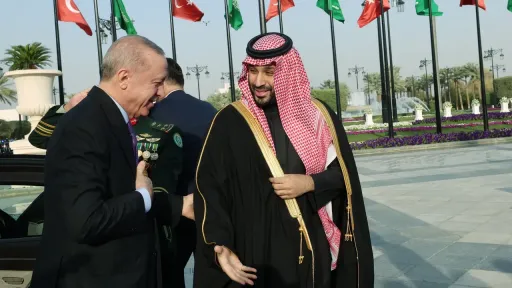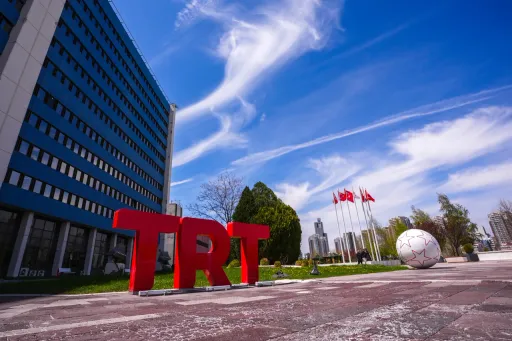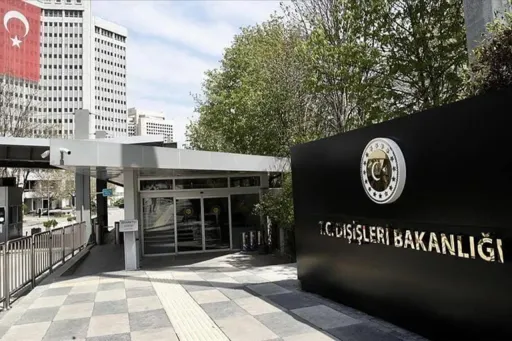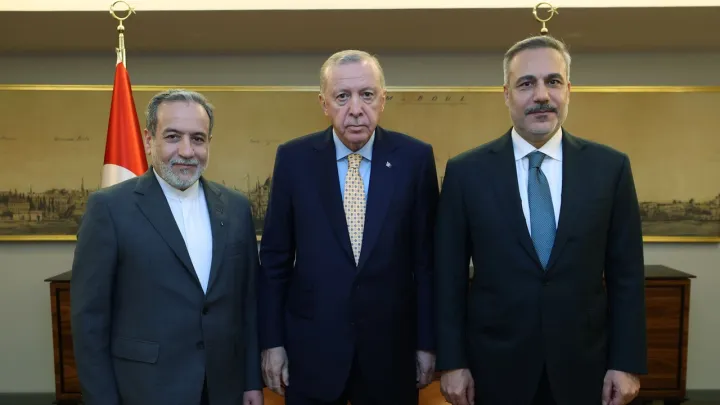Sport
Dollar
43,5418
0.02 %Euro
51,5478
0.19 %Gram Gold
6.999,8100
1.3 %Quarter Gold
12.309,5300
0 %Silver
125,4800
2.48 %When women and children resisted a violent coup attempt in 2016 – the courage, resolve and sacrifice of unarmed civilians became central to Türkiye’s collective memory.
Nine years ago, on the night of 15 July 2016, Türkiye faced what would become one of the bloodiest and, yet, most resilient episodes in its modern history.
A faction of the military, affiliated with the Fetullah Terrorist Organisation (FETO), attempted to seize power by force. The putschist soldiers targeted key government institutions by air and ground, and attacked unarmed civilians who found themselves staring down tanks and automatic rifles.
Many civilians flooded the streets after President Recep Tayyip Erdogan called on the nation to resist. Speaking live en route from Marmaris to Istanbul Airport, he urged citizens to stand against the coup alongside him.
Leaked orders circulated among the instigators were stark that a coup commander instructed them to shoot without mercy: “There is a resisting crowd, directly shoot at them, there is no forgiveness to any of them. None.”
The woman who told a soldier, “I birthed you my son,” was not simply trying to reason with him; but evoking the shared code of maternal sacrifice and military service. His reply: “God will forgive us, don’t you worry.”
Met with determined civilian and police resistance, the coup failed. But not before 253 people were killed, among them eleven women, children, police officers, and hundreds more injured.
On the Bosphorus Bridge, now renamed the July 15 Martyrs’ Bridge, two women, Ayse Aykac (44) and Sevgi Yesilyurt (51), were killed.
Aykac, a mother of four, left home after hearing President Erdogan’s televised address. So did Yesilyurt, a mother of two. Both were gunned down by putschist soldiers on the bridge.
The youngest among the female martyrs were 23-year-old police officers Kubra Doganay and Cennet Yigit, classmates and colleagues, also killed in the line of resistance.
TRT World spoke to some of the women who survived that night, and the loved ones of the martyred women, who, too, embody the spirit of resistance.
‘If we stay, the homeland is ours’
The most persistent image of resistance from that night may be that of Adviyye Gul Ismailoglu from Fatih, Istanbul. She was just 14 years of age at the time of the coup.
“We only had our flag in our hands and ‘soldiers to the quarters’ chants in our mouth,” she tells TRT World. “I thought they wouldn’t do anything wrong or shoot at the people standing before them.”
It is an image so out of sync with the violence that met her.
“There were about 150 citizens around, we saw traitors in uniform forming a barricade and not letting people go to the municipality side,” she says, adding, “they started to shoot at citizens directly to kill.”
The bullet that tore through her back, leaving a hole around fifteen centimetres, missed her spine but damaged her lungs. She spent a week in a coma.
She was not, however, unconscious at the time of injury.
“That night was a turning point for me as it is for Türkiye,” she says. She ended her account with a quote from Yavuz Sultan Selim Han: “If we die, paradise is ours; if we stay, the homeland is ours.”
‘I lost my pillar of support, but not my country’
Others, like Turkmen Tekin, a 46-year-old mother of three, had responded instinctively to the events of the night. “The country is being lost, we have to act now,” she had told her husband.
Leaving her three children in bed, she had performed ablution (a ritual washing before prayer) and handed the house key to her sister-in-law, asking her to care for the kids. Her youngest child was just 11.
“My wife was so excited she didn’t even put on her shoes. She did not pause to dress properly,” Tekin’s widower Ramazan, tells TRT World.
They made for the local police station in Esenler, an Istanbul district on the European side, then rerouted toward Ataturk Airport after hearing the president’s location, hoping to join him there.
“We took to the streets for our homeland, for our flag, for the call to prayer. I’ve never felt regret or thought, “Why did we go out?” Because without a state, there is no homeland, no flag,” he adds.
Somewhere along the way, as tanks rolled forward, they were overtaken.
“We were walking, and people were shouting ‘a tank is coming’ one after another, or at least it seemed that way. In the buzz of that crowd, you couldn’t hear anything in that noise.”
When they realised the tank was driving towards them, Ramazan Tekin told his wife to move aside. “The traitors were driving that tank over us,” he tells TRT World.
“When I looked at my wife, I saw her on the ground.” She had been struck fatally on the skull. His eyes were moist as he recounted holding her in his arms, adding that he called out to her, but she couldn’t speak.
They rushed her to the hospital, but doctors could only confirm her death. He held her as she died, later telling reporters: “When I looked at her, she had the same smile, same white skin as she had on our wedding day.”
Turkmen Tekin, he adds, had always longed for martyrdom. “She would always say, ‘If only I were a soldier or served the state so I could become a martyr.’ God granted her the martyrdom she always wished for.”
He finds quiet strength in his wife’s sacrifice for her country, whose love unites them both.
“I lost my wife. I lost my pillar and support. But I didn’t lose my country.”
‘May the homeland live on’
There is heroism, moral courage and something almost operatic in these stories, the mother who leaves her children sleeping, the teenage girl standing defiantly in front of armed men, the husband carrying his wife’s bloodied body through a crowd.
These moments, and the stories that preserve them, is a retelling of the night the republic was almost lost, and preserved. The cost of forgetting would be even greater than the cost of resistance.
The events of that night are now stitched into the country’s national memory, institutionalised by a state holiday, and immortalised by narratives of martyrdom.
The killing of 253 people, some as young as 15, are memorialised. 15 July is marked by commemorative events, and interviews with survivors and bereaved families.
“Vatan sagolsun,” as one of the interviewees tells TRT World.
“May the homeland live on.”
Comments
No comments Yet




















Comment